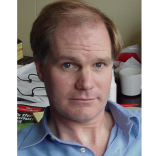Why is it that countries experience such different development outcomes despite similar structures of production? Why is it that immigrants often dominated the industrialization process in Latin America, despite facing the same weak business climates and institutions as the locals? Why is it that the quality of developing country exports does not seem to catch up to that of advanced countries? Why is it that—given the enormous potential gains to Schumpeterian catch up in terms of growth, poverty reduction, and the generation of widespread, high-quality employment—poor countries seem to invest so little in R&D? Finally, why does China do so much?
This talk will draw on historical evidence and recent empirical work to document the absolute centrality of the innovation agenda. It will then argue that our conception of innovation policy and the National Innovation System needs to include a broader range of complementary ingredients, such as managerial ability and well developed financial markets, than is customarily considered. It will draw on global data as well as Asian and Latin American case studies.

